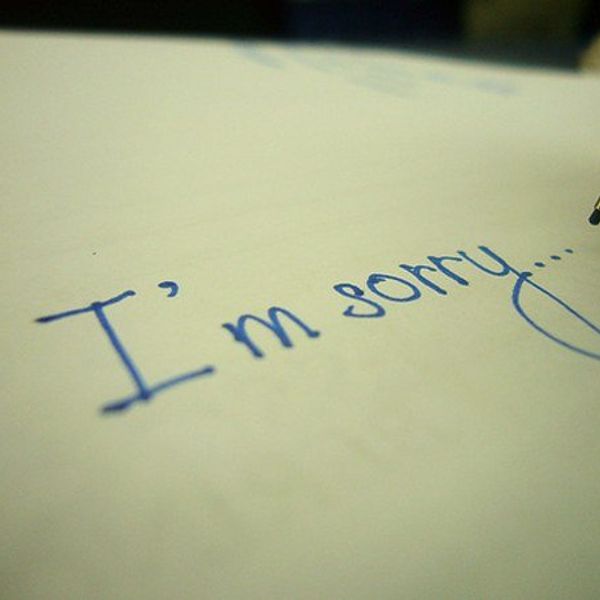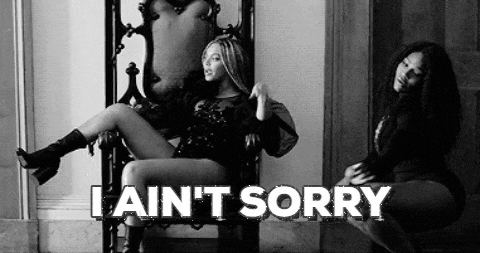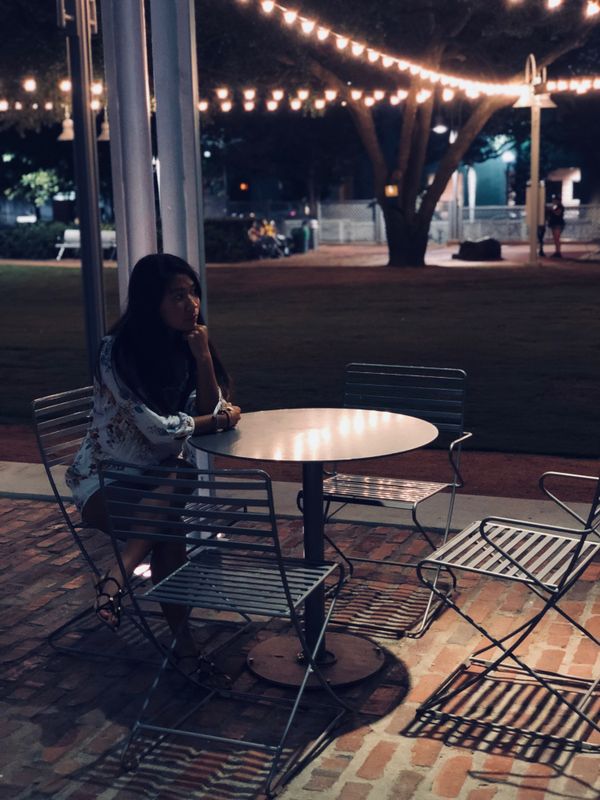I cannot count the amount of times I have been bumped into accidentally. I cannot tell you how many people have let a door close on me, spilled something on me, or done something else to me that was not at all my fault. Yet every time something along these lines happens, I find myself apologizing. In the words of my favorite comedian on Netflix, John Mulaney, you could spill hot soup on my lap and I would still probably apologize to you. Yes, it’s a funny concept—hahaha, punch me in the face and I’ll say ‘sorry’ to you. But for me, I find myself saying ‘sorry’ more and more in situations that just don’t make sense. I don’t just apologize to the rude guy who wasn’t watching where he was going. I apologize when I’m blamed for something I didn’t do; I apologize when I feel an argument coming because it’s easier to surrender than stand my ground. I apologize to virtually everything, and that scares me because I know there are mild souls out there like myself who do the same.
My friends know me as the “confrontation avoider”— I absolutely hate any kind of upfront arguing or discomfort. When my roommate gets on my nerves, I leave the room or take a nap or do anything to blow off steam rather than talk to her like a normal person (all the love in the world to you, by the way—thanks for dealing with me). I would rather let emotion boil up inside of me than let you know I’m upset with you, and I’ve learned that this is a horrible, horrible trait to have because once I finally do let my feelings out, I explode. So before I even begin discussing my overly apologetic issue, take my advice. Get the words off of your chest as soon as you feel them weighing you down or you’ll never be able to breathe.
That’s how all of the ‘sorry’s’ start to feel when they’re said too much, too unnecessarily—like you’re breathless. It’s not polite or humble to apologize for something that is not your fault. I remember being younger, hearing snide comments about the way I was dressed and immediately responding with some kind of apology. I was raised to respect elders and authority figures—overall, a very good characteristic to have—but I was so afraid of disapproval that I let everyone walk all over me. Insult the way I’m dressed now and I probably won’t respond with, “Oh, I’m sorry.” I try not to apologize for having an unrealistic major or cutting my hair too short because these are not things I should be sorry about. These are just small examples, though. Fortunately, my shame only went as far as the length of my skirt or hair or college career, but what about the people who are criticized for more serious issues? There are rape victims feeling ashamed of what happened to them because they were drinking too much or wearing the ‘wrong clothes.’ There are people blaming themselves for problems completely out of their control, and a lot of this criticism stems from passive perceptions of ourselves. So many timid personalities get trampled on by society’s ‘dos’ and ‘do nots.’ So many apologizers are saying sorry when it’s simply not their fault.
To the beautiful people in my life who have screamed at me to stop apologizing, thank you a million times over. When plans don’t work out or something out of my control changes, thank you for making me take my ‘I’m sorry’ back. There are times for apologies, but there are so many other times for anything but. There are moments of realization, pieces of life that should be opportunities to stand up for ourselves and live completely and utterly unapologetic. Let’s be like Beyoncé (she ain’t sorry) and be a little less self-accusing for the things that aren’t our fault. Having pride in yourself is powerful, being sorry for the right reasons is wise, but being too passive is poison. If you’re anything like me and you catch yourself apologizing for no reason, remember your worth and kick the habit. There is nothing more freeing than living life unashamed.






















